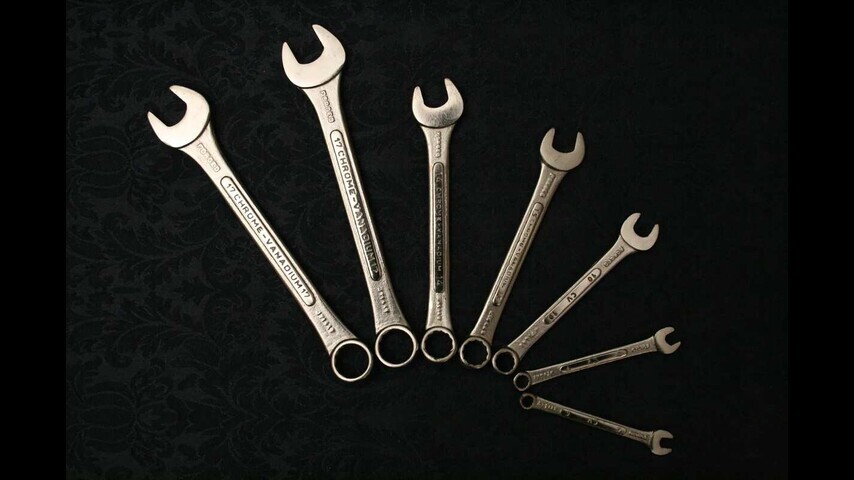Wrenches are indispensable tools in various fields, including automotive and mechanical applications, plumbing, and construction. These versatile tools come in different types and sizes, each designed for specific tasks, providing torque to turn objects—usually rotary fasteners like nuts and bolts. This article explores the various types of wrenches and their uses in the aforementioned industries – tokohasil.com.
Automotive and Mechanical Applications
a. Types of Wrenches:
- Socket Wrenches: These wrenches use interchangeable sockets to fit different sizes of fasteners, making them versatile and efficient. They are essential for automotive work due to their ability to reach tight spaces and provide substantial torque.
- Combination Wrenches: These wrenches have an open-end on one side and a box-end on the other, offering flexibility in various mechanical tasks. The open-end is useful for quick turning, while the box-end provides a secure grip on nuts and bolts.
- Torque Wrenches: Used to apply a specific torque to a fastener, torque wrenches are crucial in ensuring that automotive components are assembled with the correct tightness, preventing over-tightening or under-tightening.
b. Applications:
- Engine Maintenance: Wrenches are vital for tasks like changing spark plugs, adjusting engine components, and removing or installing various parts.
- Suspension Work: Socket wrenches and torque wrenches are commonly used in suspension work to ensure that bolts are tightened to the manufacturer’s specifications, maintaining vehicle safety and performance.
- Brake Systems: Wrenches are used to work on brake calipers, rotors, and pads, which require precise torque to ensure proper function and safety.
Plumbing
a. Types of Wrenches:
- Pipe Wrenches: These heavy-duty wrenches are used to grip and turn pipes and pipe fittings. They have adjustable jaws that can handle different pipe sizes, making them indispensable in plumbing.
- Basin Wrenches: Designed for working in tight spaces, basin wrenches have a long handle and a swiveling jaw, allowing plumbers to reach nuts under sinks and basins.
- Adjustable Wrenches: Also known as Crescent wrenches, these are versatile tools that can be adjusted to fit various sizes of nuts and bolts, making them handy for a wide range of plumbing tasks.
b. Applications:
- Pipe Installation and Repair: Pipe wrenches are used to assemble and disassemble threaded pipes, ensuring a tight and leak-free connection.
- Faucet Installation: Basin wrenches are essential for tightening and loosening nuts in confined spaces, such as under sinks, where other wrenches cannot reach.
- Fixture Maintenance: Adjustable wrenches are useful for tasks like fixing leaks, tightening loose connections, and replacing worn-out parts in plumbing fixtures.
Construction
a. Types of Wrenches:
- Allen Wrenches: Also known as hex keys, these are used for driving bolts and screws with hexagonal sockets in their heads. They are essential in assembling furniture and machinery.
- Ratchet Wrenches: These wrenches have a mechanism that allows for continuous motion in one direction while preventing motion in the opposite direction. They are useful for tightening or loosening bolts quickly without repositioning the wrench.
- Spud Wrenches: These are specially designed for aligning bolt holes and tightening nuts and bolts in steel construction. They have a tapered spike on one end and a wrench on the other.
b. Applications:
- Steel Erection: Spud wrenches are used to align and secure steel beams and girders, ensuring proper alignment and structural integrity.
- Equipment Assembly: Allen wrenches are commonly used in assembling machinery and equipment, where hexagonal socket screws are prevalent.
- General Construction: Ratchet wrenches are versatile tools in construction, allowing for efficient tightening and loosening of bolts and nuts in various applications, from scaffolding assembly to building frameworks.
Conclusion
Wrenches are essential tools across automotive and mechanical applications, plumbing, and construction. Each type of wrench is designed to meet specific needs, whether it’s the precise torque required in automotive maintenance, the sturdy grip needed in plumbing, or the versatility demanded in construction. Understanding the various types of wrenches and their applications helps professionals in these fields perform their tasks more efficiently and effectively, ensuring safety, reliability, and high-quality outcomes. Visit Web – Hafas: baut & mur







Leave a comment
Your email address will not be published. Required fields are marked *